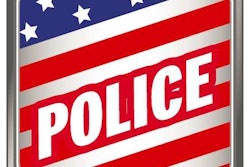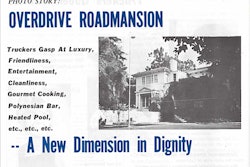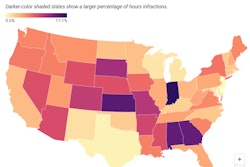“There’s an appeal to [the camera] because it makes logical sense. Now, between logical sense and evidence that actually supports it, there’s quite a difference.” – University of Cambridge (England) criminologist Barak Ariel, quoted in The Atlantic

Most readers were positive about the potential efficacy of such devices used widely to help in preventing or at least sorting out the high-octane situations that have dominated discussions of race and politics across the country since the killing of Michael Brown in Ferguson, Mo. Two-thirds of readers believe body cameras could lead to policing improvement.
“Cameras and padlocks: they keep honest people honest,” noted Barton van Buskirk under the poll here at OverdriveOnline.com.
However, there’s more in the mix of possible outcomes of cameras’ use than the simple question entails. As Ariel’s quote above suggests, it’s unclear whether basic logic – cameras up the ante on accountability for all parties of any interaction – really is borne out by any evidence at this point.

Commenters among the more vocal “no” voting minority offered concerns with further complication for an already overtaxed, overburdened police force; doubts about efficacy in proving at-fault parties in disputed encounters; and concerns with privacy.
Restoration of due respect for the badge across the culture and among the force itself, such thoughts suggest, is the ultimate goal – one that a technological patch may not do much to accomplish.
As one anonymous commenter noted, “There is no substitute for honor and integrity.”










